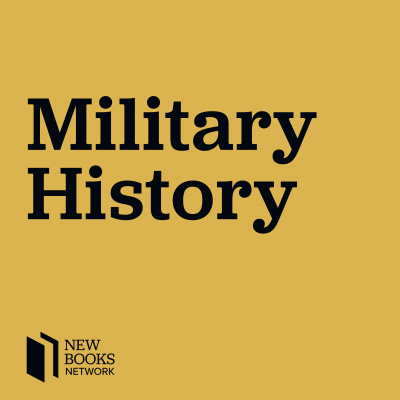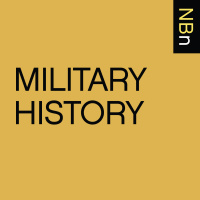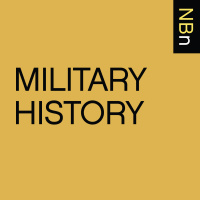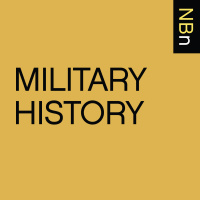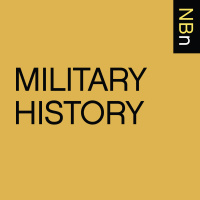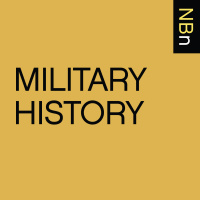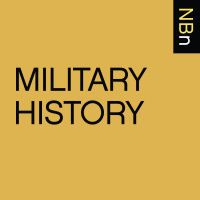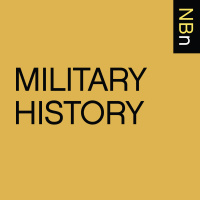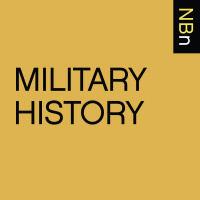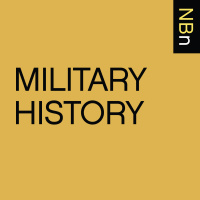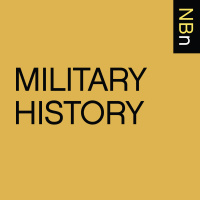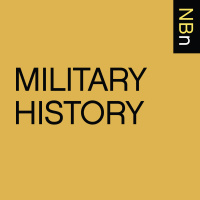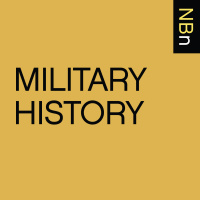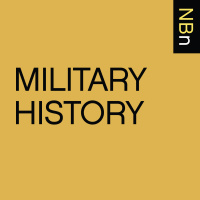Sinopsis
Interviews with Scholars of Military History about their New Books
Episodios
-
Paul M. Cobb, “The Race for Paradise: An Islamic History of the Crusades” (Oxford UP, 2014)
25/07/2016 Duración: 49minThe Crusades loom large in contemporary popular consciousness. However, our public understanding has largely been informed from a western perspective, despite the fact that there is a rich textual tradition recording its history in Muslim sources. Paul M. Cobb, Professor of Near Eastern Languages and Civilizations at the University of Pennsylvania, remedies this problem in The Race for Paradise: An Islamic History of the Crusades (Oxford University Press, 2014) by presenting the fullest and most readable account of the Crusades relying on Islamic sources. Cobb expands the geographical and chronological boundaries of the Crusades by placing traditional conflicts within Muslim accounts of Frankish aggression. In general, medieval Muslims were not overly concerned with Europe and ongoing relationships between Christians and Muslims only really existed in the Mediterranean context. European expansion into Muslim lands throughout the Middle Ages marked a different phase of encounter,but these incursions were not a
-
Mitchell Yockelson, “Forty-Seven Days: How Pershing’s Warriors Came of Age to Defeat the German Army in WWI” (NAL Caliber, 2016)
25/07/2016 Duración: 58minIn Forty-Seven Days: How Pershing’s Warriors Came of Age to Defeat the German Army in World War I (NAL Caliber, 2016), National Archives historian and forensic archivist Mitchell Yockelson reappraises the American Expeditionary Force’s performance under the command of General John J. Pershing. Accordingly, the American forces’ combat experience in the September to November 1918 Meuse-Argonne Campaign is shown to be far more pivotal to Allied victory than allowed for in the standard Anglo-centric literature of the conflict. Even as Pershing’s army acquired its craft in hard fighting against an increasingly implacable and desperate German opponent, the men of the A.E.F. proved to be relentless in their efforts to clear the densely wooded and fortified forest that had resisted French efforts for the previous four years. Yockelson’s account of the campaign is even-handed and well-written, providing the foundation for an interesting conversation about the book and his own approach to
-
John Freed, “Frederick Barbarossa: The Prince and the Myth” (Yale UP, 2016)
15/07/2016 Duración: 01h09minFor all of his importance as a medieval ruler, there are surprisingly few biographies in English of the German emperor Frederick Barbarossa (c. 1122-1190). John Freed fills this gap with his new book, Frederick Barbarossa: The Prince and the Myth (Yale University Press, 2016), which offers readers both an account of Frederick’s life and his posthumous image as a German ruler. Freed begins by describing the historical background of 12th century Germany, setting Frederick’s succession to the throne within the context of medieval dynastic politics. From there he recounts Frederick’s campaigns against both the papacy and the Italian communes, his subsequent efforts to strengthen his rule in Germany, and his death in the Near East while participating in the Third Crusade. Though an undercurrent of frustrated ambition ran throughout many of his efforts, Frederick nonetheless became a symbol of a united Germany by the 19th century and, in the process, achieved a stature as a sovereign that belied t
-
Marc Lynch, “The New Arab Wars: Uprisings and Anarchy in the Middle East” (PublicAffairs, 2016)
13/06/2016 Duración: 21minMarc Lynch is the author of The New Arab Wars: Uprisings and Anarchy in the Middle East (Public Affairs, 2016). Lynch is a professor of political science at George Washington University and blogs at the Monkey Cage. From Tunisia to Egypt to Syria, the Arab Spring saw protesters storm to the street demanding reform and revolution. Five years later, most of these countries remain forever changed yet far from reformed. Peace has not been lasting across the region, and Lynch’s book attempts to reconcile what explains the ongoing warfare. He argues that this upheaval may be at its start, rather than at its completion. Authoritarian regimes remain in place in many countries and the U.S. continues to struggle to find a sustainable role.Learn more about your ad choices. Visit megaphone.fm/adchoices
-
Michael Broer, “Napoleon: Soldier of Destiny” (Pegasus, 2015)
13/05/2016 Duración: 50minMost biographers writing about the life and achievements of Napoleon Bonaparte have focused on his dramatic personality or his military campaigns. In Napoleon: Soldier of Destiny (Pegasus, 2015) the inaugural volume of a projected three-volume biography of the French ruler Michael Broers’ takes a different approach. Drawing upon a new and vastly expanded collection of Napoleons letters to chronicle his subjects life from his early years in Corsica to the eve of his 1805 campaign, Broers focuses on his achievements in politics and state-building. He sees Napoleon’s time as conqueror and ruler of Italy as key both to his emergence as a prospective leader and to the development of his ideas of governance. Though applied bluntly in Egypt, their legacy in Napoleons development of the French state during his subsequent years as First Consul and as emperor are made clear by the author, who details how they created not just the structure of administration France uses to this day but more modern and unifor
-
Doug Bradley and Craig Werner, “We Gotta Get Out Of This Place: The Soundtrack of the Vietnam War” (U of Massachusetts Press, 2015)
30/04/2016 Duración: 42minFrom the “Ballad of the Green Berets” to “Bad Moon Rising,” the music of the Vietnam War is woven through every vets memories. Vietnam vet Doug Bradley and his fellow University of Wisconsin professor Craig Werner first intended to whittle down a list of the top 20 songs of the war, and soon realized that was an impossible errand. No Vietnam veteran is alike, and hundreds of songs held meaning for those who fought there. It was a varied soundtrack of patriotism and protests, hard rock and soul music, love songs, Dear John songs and more. Bradley and Werner’s book We Gotta Get Out Of This Place: The Soundtrack of the Vietnam War (University of Massachusetts Press, 2015) blends musical and personal histories, explaining the backgrounds of specific songs and artists as well as what they meant to the Vietnam soldiers. In a conversation with Gael Fashingbauer Cooper, they discuss everything from the generational differences between Vietnam soldiers and their World War II-veteran fathe
-
Joshua Zimmerman, “The Polish Underground and the Jews, 1939-1945” (Cambridge UP, 2015)
18/03/2016 Duración: 01h48minSome books fly high above the field, making sweeping generalizations about big questions. Other books circle over a specific problem, analyzing it in great detail to say something important about a single subject. Joshua Zimmerman‘s The Polish Underground and the Jews, 1939-1945 (Cambridge University Press, 2015) shows how important and valuable books that adopt the latter approach can be. The book is an exceptionally rich account of the attitudes, politics, policies and actions of the Polish Underground regarding Polish Jews during the Second World War. Zimmerman, Associate Professor of History at Yeshiva University in New York, spent years exploring archives, memoirs and secondary sources in preparing the book. Nearly every page of the book displays this research, with extensive quotes from newspapers, internal communications and leaders within the army. Zimmerman is well-aware of the historical and political stakes involved in his question. His answers are careful, nuanced and balanced. I can imagine
-
John M. Kinder, “Paying with Their Bodies: American War and the Problem of the Disabled Veteran” (U of Chicago Press, 2015)
18/12/2015 Duración: 01h18minJohn Kinder brings to life the challenges and problems faced by the disabled veteran in American history from the Civil War to the current day in his evocative book, Paying with Their Bodies: American War and the Problem of the Disabled Veteran (University of Chicago Press, 2015). Considered by many...Learn more about your ad choices. Visit megaphone.fm/adchoices
-
Daniel Tortora, "Carolina in Crisis: Cherokees, Colonists, and Slaves in the American Southeast, 1756-1763" (UNC Press, 2015)
18/12/2015 Duración: 58minLong viewed conventionally through the lens of inter-European/colonist conflict, warfare in colonial era North America is currently experiencing a resurgence as a new generation of military historians employ a variety of tools and methods borrowed from other fields and disciplines. Our latest guest, Daniel Tortora, does so in his book Carolina in Crisis: Cherokees, Colonists, and Slaves in the American Southwest, 1756-1763. By focusing on the French and Indian War's Southern theater, particularly in the two Carolinas and Virginia, Tortora crafts a unique account of an area generally overlooked in the face of the larger body of scholarship focused on events in the Northern Colonies and Canada. Carolina in Crisis employs a conceptual narrative and analytical framework often associated with Borderlands theory to craft an intricate account of conflict and how it was viewed across three different cultural boundaries: white European, native American, and enslaved Africans. The end product is a rich and rewarding ad
-
Peter Thorsheim, “Waste into Weapons: Recycling in Britain during the Second World War” (Cambridge UP, 2015)
17/12/2015 Duración: 59minIn Waste into Weapons: Recycling in Britain during the Second World War (Cambridge University Press 2015), Peter Thorsheim explores the role of waste and recycling in Britain under conditions of total war. Thorsheim argues wartime salvage efforts linked civilians socially as well as materially to the war. Salvage drives served to focus people’s efforts and helped them make sense of the events around them and their role in the conflict. The ebb and flow of resource scarcity served as a metric in which to measure changing military and strategic concerns against the Axis, but also complicated the wartime alliance between the British Empire and the United States. Although essential for national survival, Thorsheim shows how wartime salvage tended to alienate as much as unite the British public. Vigorous, but often ill-conceived, salvage efforts led to infringements of civil liberties, destroyed historical artifacts, and damaged private property. Some materials were never recycled and left to languish in eno
-
Jennifer Mittelstadt, “The Rise of the Military Welfare State” (Harvard UP, 2015)
10/12/2015 Duración: 50minHave you seen those Facebook memes floating around, arguing that we shouldn’t support a 15-dollar -per-hour minimum wage for service sector workers because the military doesn’t earn a living wage? Jennifer Mittelstadt tells us how these stark lines were drawn between the military and the civilian economy – and on how military welfare affects us all. Jennifer Mittelstadt is Associate Professor of History at Rutgers University. She is the author of The Rise of the Military Welfare State (Harvard University Press, 2015). You can read more about her research here.Learn more about your ad choices. Visit megaphone.fm/adchoices
-
Nicholas Stargardt, “The German War: A Nation Under Arms, 1939-1945” (Basic Books, 2015)
18/11/2015 Duración: 01h10minIn all of the thousands upon thousands of books written about Nazi Germany, it’s easy to lose track of some basic questions. What did Germans think they were fighting for? Why did they support the war? How did they (whether the they were soldiers fighting in France or Russia, women working to support the war effort, or mothers or fathers worrying about their children) experience the war? Nicholas Stargardt‘s new book The German War: A Nation Under Arms, 1939-1945 (Basic Books, 2015) sets out to answer these questions. The book is a delight. Stargardt approaches his subject with a depth of feeling and of insight that all historians aspire to. His analysis is careful, measured and nuanced, shedding new light on a variety of important questions. But the book’s strength lies in the way it immerses itself into the lives of ordinary Germans. Stargardt’s retelling of their stories is compassionate and empathetic. It is the nature of the lives of his subjects that many of his stories end sudde
-
John Kinder, “Paying with Their Bodies: American War and the Problem of the Disabled Veteran” (U of Chicago Press, 2015)
06/10/2015 Duración: 01h18minJohn Kinder brings to life the challenges and problems faced by the disabled veteran in American history from the Civil War to the current day in his evocative book, Paying with Their Bodies: American War and the Problem of the Disabled Veteran (University of Chicago Press, 2015). Considered by many reviewers to be one of the most important books in recent years on the human cost of war, Paying with Their Bodies blends lively anecdotal accounts of individual veterans with the complex questions of their imagined and real place in society before, during, and after their time served. Not surprisingly the answers are at times even more disheartening as Kinder uncovers a pattern of promises made and unfulfilled, in which the only consistencies across time are episodes of exploitation for political and personal gain by others and the eventual neglect as the public memory of their sacrifice fades.Learn more about your ad choices. Visit megaphone.fm/adchoices
-
Derek J. Penslar, “Jews and the Military: A History” (Princeton UP, 2015)
01/10/2015 Duración: 31minIn Jews and the Military: A History (Princeton University Press, 2015), Derek J. Penslar, the Stanley Lewis Professor of Israel Studies at the University of Oxford and the Samuel Zacks Professor of Jewish History at the University of Toronto, explores the expansive but largely forgotten story of Jews in modern military service. Over more than three centuries, millions of Jews have joined, voluntarily and not, the military of their home country. Military service offered an opportunity to demonstrate masculine pride, to show worthiness for emancipation, or for upward mobility. The history of Jewish military service sheds light on the experience of Jews and power in the modern world.Learn more about your ad choices. Visit megaphone.fm/adchoices
-
Terrance J. Finnegan, “A Delicate Affair on the Western Front: America Learns How to Fight a Modern War in the Woevre Trenches” (The History Press, 2015)
14/09/2015 Duración: 01h28sIn his second book, author Terrance J. Finnegan describes America’s early experience fighting the Germans during World War I. Finnegan’s A Delicate Affair on the Western Front: America Learns How to Fight a Modern War in the Woevre Trenches (The History Press, 2015) provides in-depth research and a great deal of context to portray the 26th Infantry Division’s desperate defense of the Woevre sector in April 1918. Relying on meticulous mining of primary documents, the author describes the leaders, tactical doctrine, weaponry, and intelligence processes of the French, German, and new American forces fighting near Seicheprey in northeastern France. Finnegan also builds on research from his first book, Shooting the Front: Allied Aerial Reconnaissance and Photographic Interpretation on the Western Front–World War I, to carefully explain intelligence collection on both sides of the trenches. In a lively interview, Finnegan explains how the action near Seicheprey–sometimes called a t
-
Dan Stone, “The Liberation of the Camps: The End of the Holocaust and its Aftermath” (Yale UP, 2015)
25/08/2015 Duración: 01h01minEvery year I ask my students to tell me when the Holocaust ended. Most of them are surprised to hear me say that it has not yet. Today’s podcast is the fourth of a summer long series of podcasts about the system of camps and ghettos that pervaded Nazi Germany, its satellite states and the regions it controlled. Earlier this summer I talked with Geoff Megargee about the Holocaust Museum’s Encyclopedia of Camps and Ghettos, Sarah Helm about the women’s camp of Ravensbruck and Nik Wachsmann about the evolution of the concentration camp system. I’ll conclude the series in a few weeks with an interview with Shelly Cline about the female guards who staffed some of the camps. In this fourth episode, Dan Stone makes a convincing case that the Holocaust reverberated for years after the war came to a close. The Liberation of the Camps: The End of the Holocaust and its Aftermath (Yale University Press, 2010),is slender but packed with information and insights. It certainly provides a top-down dis
-
Parks M. Coble, “China’s War Reporters: The Legacy of Resistance against Japan” (Harvard UP, 2015)
10/08/2015 Duración: 01h03minParks M. Coble‘s new book is a wonderful study of memory, war, and history that takes the Sino-Japanese War of 1937-1945 and its aftermath as its focus. China’s War Reporters: The Legacy of Resistance against Japan (Harvard University Press, 2015) is organized in two major parts. The first part (Ch. 1-5) look closely at writing done by journalists and intellectuals during the war, focusing especially on those who were associated with the National Salvation Movement. Here we find a fascinating account of Chinese journals, newspapers, and war reporters that pays special attention to the political and ideological motivations behind wartime writers’ choices of what to report and how to report it. The distinctions here between rural and urban experiences and knowledge of the war are especially striking. The second part (Ch. 6-7) looks at the “re-remembering” of the war, including the consequences of communist rule for Salvation Movement writers in the immediate aftermath of the war, t
-
Barak Kushner, “Men to Devils, Devils to Men: Japanese War Crimes and Chinese Justice” (Harvard UP, 2015)
01/08/2015 Duración: 01h07minBarak Kushner‘s new book considers what happened in the wake of Japan’s surrender, looking closely at diplomatic and military efforts to bring “Japanese imperial behavior” to justice. Men to Devils, Devils to Men: Japanese War Crimes and Chinese Justice (Harvard University Press, 2015) focuses on the aftermath of the Japanese war crimes, asking a number of important questions: “How did the Chinese legally deal with Japanese war crimes?” and “What were the Japanese responses, and [how] did these processes shape early Cold War Sino-Japanese relations?” Two ways of reconsidering history shape the study. First, Kushner reframes Japan as a decolonizing empire, not just a defeated country. At the same time, he looks at the “shifting landscape of the concept of law in East Asia” and its impact on relations in the region during this period, especially in terms of international law and associated notions of accountability. These two broad historiographical re
-
Suzanne Broderick, “Real War vs. Reel War: Veterans, Hollywood, and WWII” (Rowman and Littlefield, 2015)
24/06/2015 Duración: 59minIn hew new book Real War vs. Reel War: Veterans, Hollywood, and WWII (Rowman and Littlefield, 2015), Suzanne Broderick shares how she discussed a number of World War II films with veterans and others who experienced the conflict first hand.Learn more about your ad choices. Visit megaphone.fm/adchoices
-
David R. Stone, “The Russian Army in the Great War: The Eastern Front, 1914-1917” (UP of Kansas, 2015)
12/06/2015 Duración: 45minReaders wanting to learn more about the Great War on the Eastern Front can do no better than David R. Stone‘s new work, The Russian Army in the Great War: The Eastern Front, 1914-1917 (University Press of Kansas, 2015). The last work to treat this comprehensively was Norman Stone’s (no relation), The Eastern Front, 1914-1917, published in 1975. While literature in English has been sparse, the Russian-language literature on the Eastern Front has grown tremendously in recent decades, and so an update was desperately needed. David Stone does more than updated the earlier Stone’s work, though. He deftly shifts our perspective not only on the Eastern Front but on the war as a whole by emphasizing commonalities (among empires, operations, home fronts) while appropriately highlighting the many unique challenges faced by the tsarist state. We learn not only about the iconic clashes in East Prussia or the Brusilov Offensive, but see the critical importance of campaigns in Poland, the Caucasus, and Ro
